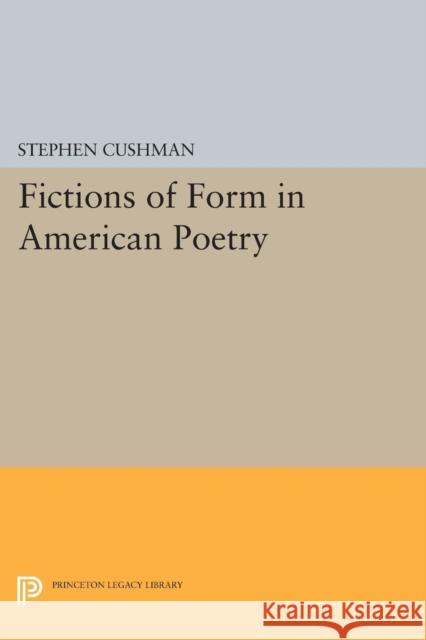Fictions of Form in American Poetry » książka
Fictions of Form in American Poetry
ISBN-13: 9780691602035 / Angielski / Miękka / 2014 / 230 str.
Fictions of Form in American Poetry
ISBN-13: 9780691602035 / Angielski / Miękka / 2014 / 230 str.
(netto: 163,26 VAT: 5%)
Najniższa cena z 30 dni: 169,32
ok. 30 dni roboczych.
Darmowa dostawa!
In the 1830s Alexis de Tocqueville prophesied that American writers would slight, even despise, form--that they would favor the sensational over rational order. He suggested that this attitude was linked to a distinct concept of democracy in America. Exposing the inaccuracies of such claims when applied to poetry, Stephen Cushman maintains that American poets tend to overvalue the formal aspects of their art and in turn overestimate the relationship between those formal aspects and various ideas of America. In this book Cushman examines poems and prose statements in which poets as diverse as Emily Dickinson and Ezra Pound describe their own poetic forms, and he investigates links and analogies between poets' notions of form and their notions of "Americanness.."The book begins with a brief discussion of Whitman, who said, "The United States themselves are essentially the greatest poem." Cushman takes this to mean that American poetry has succeeded in making fictions about itself which persuade its readers that its uniqueness transcends merely geographical boundaries. He explores the truth of this statement by considering the Americanness of Emily Dickinson, Ezra Pound, Elizabeth Bishop, and A. R. Ammons. He concludes that the uniqueness of American poetry lies not so much in its forms as in its formalism and in the various attitudes that formalism reveals.Originally published in 1993.The Princeton Legacy Library uses the latest print-on-demand technology to again make available previously out-of-print books from the distinguished backlist of Princeton University Press. These editions preserve the original texts of these important books while presenting them in durable paperback and hardcover editions. The goal of the Princeton Legacy Library is to vastly increase access to the rich scholarly heritage found in the thousands of books published by Princeton University Press since its founding in 1905.











